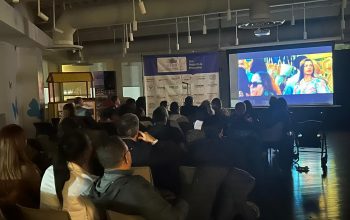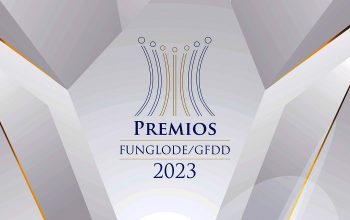news
“Law On Political Parties, Statutes And Constitution”, an article by Dr. Leonel Fernández
October 26, 2018
Tomorrow, Saturday, October 27, the Central Committee of the Dominican Liberation Party (PLD) has been convened for the purpose of defining the modality and the kind of voter registry it will use in the selection of candidates that are expected to participate in popular elections.
Opinion makers believe that what is at the core of the debate is a power struggle between two sectors of the organization. For others, what is involved is a struggle to determine
if the primaries will be defined by the party’s registry (closed primaries) or, quite the contrary, if the voter registry of the Electoral Board (open primaries) should be used. It will all depend on the convenience of the parties involved.
Others believe that pride is what’s involved in the process. Pride involving those who do not want to have their ‘arm twisted;’ a situation that involves egos in conflict but that in the end they
basically respond to non-transcendental or byzantine issues.
However, none of the above is true. What is at stake is the Constitution’s supremacy, or the power of the Rule of Law as the organizational structure of a democratic and modern society.
This is expressed through the diversity and plurality of the forms manifested through the civilized and harmonious existence of humans. One of these forms, for example, is the one that has to do with
the organization and operation of political parties.
In 2004, the Dominican Republic approved Law 286-04. This law established a “system of primary elections through the universal vote, direct and secret.”
Independently, and whether or not this is the best or worst system for the election of candidates within a party, the truth is that the following year, in 2005, the Supreme Court declared null said law. The Court ruled that it
violated two fundamental principles of our Constitution: the freedom of organization and the freedom of association.
Moreover, in 2003 – two years later and in light of this ruling – the country’s top judicial organization issued Resolution 1920-03, where it ruled that “the sentences dictated in exercise of the Constitutional control concentrated, are part of the Constitutional block.”
In regards to what is stated
above one can assume that these rulings were directly linked to all State institutions, and which were later incorporated in Article 184 of the current Constitution of the Republic.
This is equivalent to stating that, both through the legal as well as the legislative systems, the concept of open and simultaneous primaries – as a method used by the political parties to elect their candidates – had not only perished but had received a Christian burial.
DEATH AND RESURRECTION
Although the open and simultaneous primary system had been declared null because it was deemed unconstitutional, this was not an obstacle for it to be reintroduced to the Senate as a new legislative bill.
After being approved by the Senate, the bill passed on to the Chamber of Deputies. But there, the national public opinion and the factual powers transformed themselves into a retaining wall. It obligated
everyone to search for an alternative formula to the original plan which called for open and simultaneous primaries.
The result of this alleged alternative search was that rather than the open and simultaneous system – as the only option to choose candidates for all political parties – the result was that the original proposal turned into one of various possibilities to consider.
This debate on the constitutionality of the Law on Political Parties has
extended to its application. Currently, the Constitutional Tribunal is debating eight unconstitutional demands that have been filed by various political parties, civil society organizations, and citizens in general.
These demands question more than 12 articles of said Law which are believed to violate Constitutional precepts, such as the supremacy of the Constitution in reference to the legal regime (Art.6); the right of free association (Art. 47); the form and outreach
of the laws on fundamental rights (Art. 74.2); the finality of the electoral assemblies (Arts. 208 and 209); internal democracy (Art. 216) and the binding precedents (Arts. 277 and 184), among others.
However, the open primaries as an option – within an overall package of possibilities – derive from the three paragraphs found in Article 45 of the Law on Political Parties. First, it highlights that: first, “the primaries, delegate conventions, militants, leaders
and surveys are the modalities through which the parties… will choose their candidates;” second, that “each party has the right to decide the modality, method and type of electoral registry or listing for the selection of its candidates;” and, thirdly, that “the competent organization in each party… should decide the type of electoral registry or listing to be used in the selection process of candidates, such as: the Central Committee, the
Executive Commission, the Political Commission, the National Committee, or the equivalent of each of these…”
Why, if the legislator knew that the simultaneous primaries with the open registry had been declared unconstitutional by the Supreme Court, did it reintroduce them as an option to consider by the parties as a selection mechanism for candidates? How and through which powers was the legislator able to carry out such a bold feat?
The
answer to this question can only be found in the fact that the short-term interests are fighting to impose a long-term democratic vision.
THE CASE OF THE PLD
Article 23 of the Law on Political Parties states that it is the right of the political organization to “exert full autonomy and freedom for the determination of its political status and general guidelines…
In Article 26, the same Law states that the
political organizations “will write their Statutes in conformity with the Constitution, the present Law, the Electoral Law, without prejudice to other laws that regulate specific related aspects.”
Further on, in Paragraph II of the same article, the Law states: “The Statutes constitute the fundamental norm of the political parties…and establish the powers, rights and party obligations that its authorities and affiliates will adjust to
correspond with their actions.”
If the Statutes, as indicated in the Law, “establish the power, rights and obligations of the parties,” why, then, did the legislator proceed to deprive it of this very faculty that appears in the same law? And, furthermore, if the parties have written its Statutes in conformity with the Constitution, why did it provide competence to choose the type of registry to party organizations that do not represent the
maximum authority of this organization?
In reality, all of this constitutes much more than a great mystery.
This is what has happened in the case of the Dominican Liberation Party. In conformity with Article 10 of its Statutes, “the National Congress is the highest leading organization of the party and is integrated by all members of the Central Committee, the presidents of the Provincial, Municipal, Intermediate and Electoral Circumscriptions
of the National District and the Province of Santo Domingo, and its various sections.”
Subparagraph C, Article 12, states that “it is the attribution of the National Congress to approve or modify the party Statutes.”
At the same time, Article 4 states that the “selection of political party candidates for national, congressional and municipal elections will be carried out through internal primaries and
according to the ruling adopted to such effects…
If everything is the way it has been stated, within the statutory norms of the party founded by Professor Juan Bosch, why does the Law on Political Parties give the party’s Central Committee the right to choose the kind of registry that should be used to choose the candidates, when it is not the maximum authority of the party that should do so?
By removing this right from the party’s
National Congress and giving this responsibility to the Central Committee, the Law was conceding the latter the right to modify the Statutes of the organization.
By allowing this process to take place, the legislator was violating the internal democratic process of the party, as guaranteed in Article 210 of the Constitution; the fundamental right of the affiliates to their right of association, and the rightful autonomy and the party’s freedom to decide how to
reform its Statutes, and determine the selection process of candidates and the type of registry to be used.
Rather that decide, as was the original intention, on whether to choose an open and simultaneous primary system what the Law on Political Parties has presented is a unique, atypical system, unknown in the world, where various modalities are applied, simultaneously, to choose political candidates.
This has all led to the approval of an incongruent
and inconsistent law that contradicts itself. Furthermore, it violates party Statutes, restricts the rights of the organization’s grassroots to participate in the decision-making processes, and enters into direct contradiction with the Constitution of the Republic.
Resolving this enigma is the great challenge that the Dominican Liberation Party faces in its meeting tomorrow, Saturday, October 27.
Let God shine upon us, so that reason
will prevail and serve as a platform for unity.





